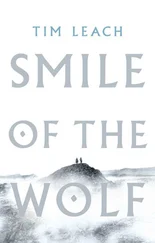An old pain in Arite’s knee shooting fire as she ran, her legs as dull and heavy as though she were running in a nightmare. At any moment she expected to feel the sharp touch from behind and see the spearhead burst from her chest like a living thing, to see the world rolling into darkness and dust. But though they seemed all about her, hooves beating the ground so that she felt it shake and the war cries roaring in her ears, it seemed that none of them thought her worth the killing.
At the wagon, Lucius and Tomyris already there, weapons in hand – the child’s face painted with an eerie calm, and Lucius with his eyes rolling in his head, muttering prayers or curses to himself in his own language. For like all Romans he feared the ambush, to be caught in open ground.
In moments she had cut the horses loose and mounted, the horse trembling beneath her, the spear cool and steady in Arite’s hand.
‘A raid,’ she said. ‘Our people. The Wolves have betrayed us.’
‘What do we do?’ said Lucius.
She saw it all in a moment. The raiders passing through like a great wave from the black sea beyond, leaving the dead behind them, drowned on dry land. The light already rising from where the wagons had been fired – so soon, impossibly soon. The war cries that sang out unanswered.
‘We must run,’ she said.
There should have been no path for escape. Everywhere she looked were the raiders of the Wolf noosing the camp, every way closed by horse and spear. Yet fluttering in the air somewhere close, a Dragon banner rose, some captain of her people leading a doomed charge. She heard the war cries of the Wolves closing about that banner, and through the burning tents, she saw a gap open up, a path to the black open steppe.
Arite charged towards that gap, Lucius and Tomyris close behind. They were through it, past it, the dark plain open before them. And they almost made it away. Almost, they were allowed to live.
For she heard a hunting cry sound high and close. For a moment, Arite could not find the courage to look back – in nightmares, a stalking monster may remain fleshless until it is looked upon, and she had the mad dreamer’s hope that if she did not look they could not harm her. Then she heard Tomyris crying out, and she could wait no longer. She looked back upon her death, five riders peeling towards them, pursuing them into the darkness.
The lightest tug of the reins, and her horse fell to a grateful stillness. A little pressure of the right knee, and they were wheeling around. For the horses they rode were old warriors, robbed of the speed of their youth, pursued by eager young killers. She knew that there would be no outrunning those who followed them. She could only hope to wear her wounds upon her front, and before her, she saw their pursuers slow to a walk, too. No need for them to waste the breath of their horses, or trust to uncertain footing in the dark.
Arite leaned over in her saddle, passed Lucius a sword. He gave an experimental swing, testing the weight and the balance.
‘It is old,’ she warned. ‘Not as strong as the ones you are used to. Be sure of your stroke.’
‘It does not matter. Thank you,’ he said, his voice just as calm as hers.
‘Tomyris…’ But Arite fell silent as she turned to the girl. She meant to tell her to ride away, flee into the night and follow the river to the east. But what a death that would be to gift the child, alone and starving on the steppe. And so instead, she said: ‘Ride close behind, and stay low in the saddle. Use your dagger – at that place on the thigh, or across the eye of the horse.’ The child shuddered at that, though more for the thought of the horse than the man. Perhaps she was still young enough, mercifully young, that she could not think of her own death.
Both sides still walking, that maddening slow pace of cavalry conserving their horses. The moon was out once more, and she could see the markings of their gear, the scalps tied to the saddlehead. Trophies that they would join soon enough.
She tried to think that it was well to end this way – a death from the old stories. But there, at the last, she found that she did not believe in the glorious death. There was only a desperate hunger to live. She could feel dewed grass against her fingers, a lover’s weight above her, the taste of wine around a fire with close companions.
‘One last time,’ she said. And then, once again, she spoke a name, only one this time. ‘Kai,’ she said. And she stirred the horse to a charge.
One rider of the five before them, standing tall in his seat, checked his horse. He seemed to turn away, and Arite thought at first that he meant to flee – perhaps it was that he had no heart to kill a woman and her child. But then the shadow of a blade rising high, and the rider beside him was tumbling from the saddle with a wet, bubbling scream.
No time to think of what had happened, for all she knew now was that they were three against four. Lucius was ahead of her, cutting to the side to draw a rider away from the pack. A sword against a lance seemed a hopeless challenge, but as he drew close Lucius gave his war cry in the tongue of Rome. The rider he faced shied away – either the horse or the man remembered the battle on the ice, and flinched in fear to hear the voice of the Emperor. And Lucius had twisted past the questing spear, and answered with a reverse cut that painted the horse with blood.
Another of the riders turned his horse to face her – that wondrous lightness, then, of those who know they are soon to die, but know that they may accomplish something with the dying. She knew that nothing mattered but the killing of this man.
She twisted in the saddle at the last moment, seeking just a little more reach. She felt a spearhead rip through the fabric of her dress, a line of white fire drawn across her ribs. Her own spear was wrenched from her hands as though by the force of a god, and when she looked back she saw the other man clutching at his thigh, his life pouring from his leg, hands scooping at the blood as though to gather it back into himself, even as he slid from the gore-slicked saddle.
Her horse was gasping, blown, and she had no weapon in her hand. She saw the last two Wolf clansmen fighting each other, trading strokes of sword and axe – one man screaming and sobbing, the other calm, parrying with the head of the axe and an armoured gauntlet and waiting for his chance.
‘Bastard! Traitor!’ yelled the first man, even as his silent companion struck and blinded his horse. It screamed and bucked, threw its rider flat across its neck, a victim on the altar. The axe swung and bit, and the screams fell to silence.
A sudden stillness came over them all. There seemed to be no rush, no hurry to do anything. Arite should have turned and fled, or cut this last man from the saddle. But they were held there, waiting in the darkness.
The rider who had turned on his companions reached up and pushed his helm up onto his forehead. And she knew then, even before she saw the scar. She knew from the smile on his face, the sour, proud smile of Gaevani.
He looked upon the dead around him, clansmen and kinsmen, his cheeks still holding their colour despite the butcher’s work that he had done. After a moment he said: ‘Never much liked them, anyway.’ And then he gave a kingly wave of the hand, directing them away.
‘Get out of here. Ride back east, and stay off the rivers if you can, they shall be hunting along the banks.’
‘Why let us go?’
‘A favour that I owed,’ he said. ‘And you won your wager, that the Roman would last the winter. You have no wine to give me, but you may call it settled, now.’ He grinned at her, his teeth pale and sharp in the moonlight. ‘And now I must get back to killing your clansmen.’
Читать дальше
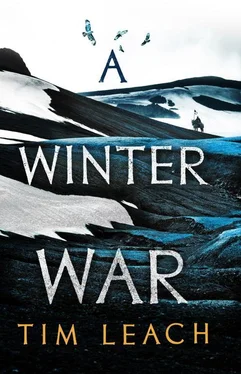
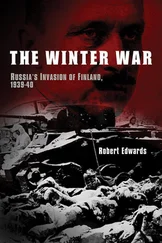

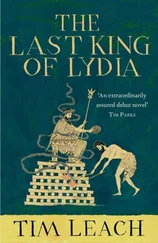
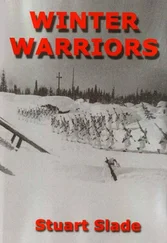
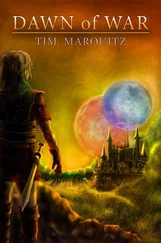

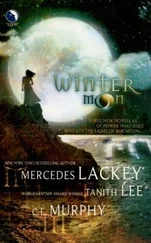
![Стюарт Слейд - Воины зимы [Winter Warriors ru]](/books/401383/styuart-slejd-voiny-zimy-winter-warriors-ru-thumb.webp)
